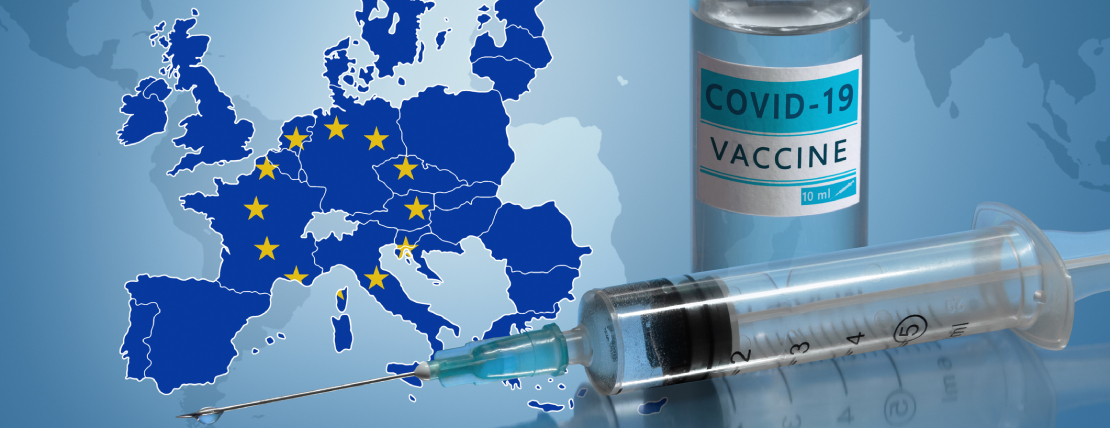- European vaccine mandates similar to U.S. Countries such as Austria, France, Hungary, Italy and the UK have implemented vaccine mandates for healthcare workers.
- Italy, Germany and France go a step further. German and Italian employees working in person are obligated to present proof of vaccination, proof of recovery or a negative test before entering the workplace, while unvaccinated French civil servants were suspended from the workplace to encourage vaccination.
- European private employers less likely to implement mandates. A Littler survey found that only 38% of European employers were encouraging vaccination, compared to 91% of U.S. employers, and most European employers (64%) reported they did not have a COVID-19 vaccination policy.
Late last week, the U.S. Supreme Court issued a stay on the Occupational Safety and Health Administration’s (OSHA) COVID-19 vaccination emergency temporary standard (ETS).
The ruling effectively put an end to the Biden administration’s efforts to require private employers with more than 100 employees to ensure their workforce was vaccinated or tested weekly for COVID-19.
The court did, however, rule on a separate mandate case that required healthcare workers at facilities receiving federal money to be vaccinated. The vote in the healthcare case was 5 to 4, with Chief Justice John G. Roberts Jr. and Justice Brett M. Kavanaugh joining the liberal justices to form a majority allowing for the modest mandate to remain in place.
The court rulings fall mostly in line with what has taken place in Europe regarding vaccine mandates, with most legislation requiring healthcare workers to be vaccinated.
- Austria: The Austrian Epidemic Law makes vaccination mandatory for those working in medical treatment or the nursing sector.
- France: Vaccination is mandatory for all healthcare and care home workers.
- Hungary: Government Decree 449/2021 (VII. 29) on mandatory coronavirus vaccination makes vaccination against COVID-19 mandatory for those working in the healthcare sector.
- Italy: Vaccination is mandatory for healthcare workers working in healthcare facilities, whether in the public or private sector.
- United Kingdom: Vaccination is mandatory for those working or providing services in care homes in England that provide nursing or personal care to residents. Legislation to make vaccination mandatory for all frontline healthcare workers is currently being debated.
Countries such as France, Italy and Germany have gone further, noted Stephan Swinkels, shareholder in Littler Mendelson P.C.’s Amsterdam office. In France, unvaccinated civil servants were suspended from the workplace to encourage vaccination. In Italy, workers who attend the workplace without evidence of either vaccination, recovery from COVID-19, or a recent negative test can be sent home without pay. A similar measure is in place in Germany, as the government implemented a “3G principle,” meaning employees working in person are obligated to present proof of vaccination, proof of recovery or a negative test before entering the workplace.
With the emergence of the Omicron variant, many European Union (EU) member states are also placing an onus on employers to encourage booster shots.
“Several EU member states are requiring employers to participate or support the activities to increase vaccination rates,” Swinkels said. “Employers, for example, are required to provide paid time off for their employees to get vaccinated or employers are required to support company physicians in offering vaccinations at work.”
Bennet Bohnke, an attorney in Littler’s Hamburg, Germany office, noted that many private employers in Europe are still assessing whether to introduce vaccine mandates as a result of this government push. However, those that do must navigate existing employment law and data privacy frameworks, which is why many remain cautious in implementing vaccination policies.
Other European countries are implementing measures that encourage remote work when feasible. Ben Smith, attorney in Littler’s London office, notes that in England, for example, government guidance was re-implemented requiring employees work from home where possible. In Ireland, working from home is mandatory unless in-person attendance is necessary. France introduced a new requirement in December 2021 requiring that employees able to work remotely must do so at least three days a week.
Differing Attitudes
Though vaccination rates in Europe are typically higher across the board than in the U.S. (63% of the population), European employers are less proactive about implementing vaccination mandates or even strongly encouraging vaccination.
“European employers are much more cautious than their U.S. counterparts,” Swinkels said, “which is likely due to the complexity and variability of rules across Europe.”
The Littler European Employer survey found that only 38% of European employers were encouraging vaccination, compared to 91% of U.S. employers. Most European employers (64%) reported they did not have a COVID-19 vaccination policy (requiring or encouraging vaccination, asking about vaccine status, or requiring or offering tests to unvaccinated individuals).
“It remains to be seen how the spread of Omicron will impact European employers’ attitudes to vaccination,” Swinkels added.
Instead, many EU member states enforced more comprehensive occupational health and safety measures to minimize the risk of infection at work and to keep office sites open by varying levels of protective measures, instead of shutting down offices and expanding telework, Bohnke noted. Littler’s survey found that European employers were more likely than their U.S. counterparts to move forward with return to office plans. In August, 66% of U.S. employers surveyed anticipated delaying their return to office plans, compared to 52% of European employers.
Ultimately, Swinkels noted, European employers have similar issues to work through as U.S. employers. European employees prefer a hybrid work model significantly more than employers, which creates added tension. Additionally, employee mental health and well-being remains a concern for European organizations, as the COVID-19 pandemic continues to linger.
“The abiding lesson for employers from the emergence of the Omicron variant is that the pandemic is, unfortunately, far from over,” Swinkels said. “Employers will need to be prepared to react agilely as the COVID situation changes and governments across Europe react with new legislation and guidance to control the spread.”







